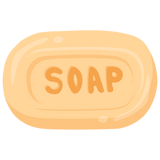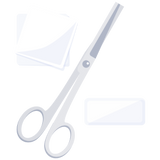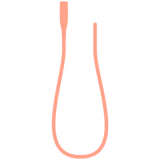
How to Choose the Right Medical Supplies for Your Needs
Posted by Pankaj Dhiman on Oct 31st 2023
When it comes to medical supplies, the choices can be overwhelming. Whether you're a patient looking to manage a chronic condition, a caregiver assisting a loved one, or a healthcare professional seeking the best tools for your practice, selecting the right medical supplies is crucial. To help you make the most informed decisions, this guide will cover everything you need to know about choosing the right medical supplies for your needs.
1. Assess Your Specific Needs
The first step in choosing the right medical supplies is to assess your specific needs. Ask yourself or your healthcare provider the following questions:
- What is the medical condition or health concern you need supplies for?
- Are the supplies for short-term or long-term use?
- Do you require any specialized equipment or supplies?
- Are there any specific brands or features you prefer?
Understanding your unique requirements is crucial in narrowing down your choices and making the right selection.
Explore Now - Bttn, Wholesale Medical Supply Platform
2. Consult Your Healthcare Provider
It's essential to consult with your healthcare provider, whether you're a patient or a caregiver. They can provide valuable insights into the medical supplies you need, recommend specific brands or products, and offer guidance on usage and maintenance. Your healthcare provider's expertise is a valuable resource in making informed decisions.
3. Research Different Types of Medical Supplies
Medical supplies come in various forms, from bandages and wound care products to mobility aids, diagnostic equipment, and more. To make the right choice, it's important to research the different types of supplies available. Some common categories include:
- Wound Care Supplies: These include bandages, wound dressings, and antiseptic products. They are essential for managing injuries and promoting healing.
- Mobility Aids: If you or a loved one has mobility issues, you might need walking aids like canes, walkers, or wheelchairs.
- Diagnostic Equipment: Blood pressure monitors, thermometers, and glucometers fall into this category. They help monitor and manage specific health conditions.
- Respiratory Supplies: For individuals with respiratory issues, items like oxygen concentrators, nebulizers, and CPAP machines are necessary.
- Incontinence Products: Incontinence can be a concern for some individuals, and products like adult diapers or pads are available to manage this condition.
Understanding the different types of medical supplies and their uses is vital to making the right selection.
4. Quality Matters
When it comes to medical supplies, quality is paramount. Subpar supplies can not only be ineffective but may also pose health risks. To ensure you choose the best quality products:
- Look for reputable brands that are known for their quality and reliability.
- Check for any certifications or approvals, such as FDA approval for medical devices.
- Read product reviews and seek recommendations from healthcare professionals or support groups.
By prioritizing quality, you can trust that your chosen supplies will serve their purpose effectively.
5. Consider Cost and Insurance Coverage
Medical supplies can vary greatly in price, so it's important to consider your budget. Check whether your health insurance covers any of the supplies you need. If so, it can significantly reduce your out-of-pocket expenses. Additionally, some suppliers may offer discounts or payment plans to help manage costs.
6. Accessibility and Convenience
Consider the accessibility of the medical supplies you need. Some products may be readily available at your local pharmacy or online, while others may require special orders or prescriptions. Evaluate the convenience and availability of the supplies to ensure they are easily obtainable when needed.
7. Product Features and Specifications
Each medical supply product comes with its own set of features and specifications. When comparing products, pay attention to the following:
- Size and dimensions: Ensure the product fits your needs and available space.
- Weight and portability: This is crucial for mobility aids and other portable equipment.
- Ease of use: Some medical supplies may require a learning curve, so consider how user-friendly they are.
- Maintenance requirements: Check whether the supplies need regular maintenance and if you can handle it.
8. Seek Assistance from Support Groups
For individuals dealing with specific medical conditions, joining support groups can be incredibly helpful. These groups often have members with a wealth of experience in managing their conditions and choosing the right medical supplies. They can provide insights, product recommendations, and tips on using the supplies effectively.
9. Read and Follow Instructions
Once you've chosen your medical supplies, it's vital to read and follow the instructions provided with the products. Proper usage and maintenance are key to ensuring the supplies perform effectively and safely.
10. Regularly Review and Update
Medical needs can change over time. It's essential to regularly review your medical supplies and update them as necessary. This may include replacing expired items, upgrading equipment, or adjusting quantities based on changing health conditions.
In conclusion, choosing the right medical supplies is a critical part of managing your health or caring for a loved one. By assessing your needs, consulting with healthcare providers, and conducting thorough research, you can make informed decisions. Prioritizing quality, considering cost, and ensuring accessibility will further help you select the best supplies for your situation. Remember, your healthcare journey is unique, and having the right medical supplies is a crucial step in maintaining your well-being.
So, take your time, ask questions, and seek guidance when needed. With the right medical supplies, you can better manage your health and live a more comfortable and fulfilling life.
Please note that the information provided in this blog is for general guidance and should not replace professional medical advice. Always consult with your healthcare provider for personalized recommendations and guidance on your specific medical needs.





























































